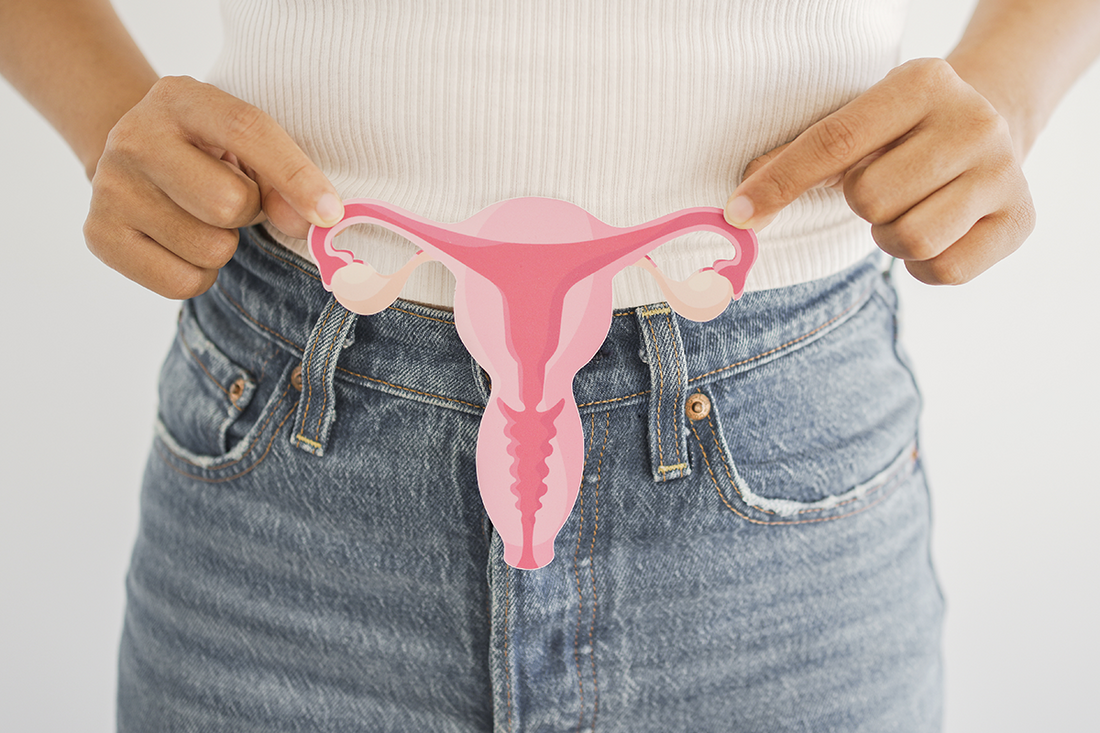
How to Support Your Endocrine System During Perimenopause
While the common symptoms of perimenopause — from hot flashes to mood swings — are widely discussed, the fundamental connection to your endocrine system is often overlooked. This intricate network of glands is the master conductor of your body's hormones, making it absolutely central to navigating the changes of perimenopause with greater ease and understanding.
This comprehensive guide will demystify the endocrine system and perimenopause, explaining how it works, what changes occur, and crucially, how you can support your body for more balanced health during this significant life stage.
What Exactly Is the Endocrine System?
The endocrine system is a sophisticated network of glands and organs that produce and release hormones. Think of hormones as vital chemical messengers that orchestrate nearly every function in your body. From regulating metabolism, energy, and growth to influencing mood, sleep, and reproductive health, the endocrine system constantly works to maintain the body's delicate internal balance, known as homeostasis.

Key Endocrine Glands Involved in Perimenopause
To truly grasp its impact on perimenopause, it's helpful to know the major players in your endocrine system:
- Hypothalamus: Situated in the brain, this vital control center acts as the command hub, signaling other glands to produce and release hormones.
- Pituitary Gland: Often dubbed the "master gland," it governs many other endocrine glands and secretes hormones essential for growth, stress response, and reproduction.
- Thyroid Gland: Located in your neck, the thyroid is crucial for regulating your metabolism, energy levels, and even body temperature.
- Adrenal Glands: Perched atop your kidneys, these glands are responsible for producing stress hormones like cortisol, which significantly influence your body's "fight or flight" response.
- Ovaries: A pair of female glands in which the eggs form and the female hormones estrogen and progesterone are made. Their function is directly linked to the onset of perimenopause.
- Pancreas: While known for insulin production, which regulates blood sugar, its function is also intertwined with overall metabolic health during hormonal shifts.
These glands operate in a sophisticated symphony, releasing hormones directly into your bloodstream to reach specific target cells and trigger essential bodily responses.
How the Endocrine System Regulates Your Body
The endocrine system communicates via hormones, acting like an internal messaging service. For example:
- When you experience stress, your adrenal glands release cortisol to help your body cope with the stress.
- If your blood sugar levels drop, your pancreas releases glucagon to bring them back to optimal levels.
Hormones travel efficiently through your bloodstream, binding to specific receptors on target cells or organs to elicit a precise response. During perimenopause, this meticulously tuned system faces significant challenges as estrogen and progesterone levels begin to fluctuate unpredictably.
Hormonal Shifts: What Happens to Your Endocrine System During Perimenopause?
Perimenopause officially begins when your ovaries gradually start producing less estrogen and progesterone. This natural decline and the resulting hormonal imbalance directly impact the intricate communication pathways between your ovaries, the hypothalamus, the pituitary gland, and even your adrenal glands.
Key Endocrine Changes & Their Perimenopause Symptoms:
- Fluctuating Estrogen Levels: Estrogen levels can swing wildly during perimenopause, leading to hallmark symptoms like hot flashes, night sweats, and pronounced mood swings. Research indicates that perimenopause is often characterized by erratically higher estradiol levels and significant fluctuations rather than just a steady decline initially, which can explain the severity of symptoms.
- Decreased Progesterone Production: As ovulation becomes less frequent, luteal progesterone levels decline. This often results in irregular menstrual periods, changes in cycle length, and heavier bleeding.
- Increased Cortisol Levels: The chronic stress often associated with perimenopause can overstimulate the adrenal glands, leading to an overproduction of cortisol. This can exacerbate feelings of anxiety, contribute to persistent fatigue, and impact sleep quality. Studies suggest a link between fluctuating cortisol levels and perimenopausal symptoms like anxiety and fatigue.
- Disrupted Feedback Loops (HPO Axis): The Hypothalamus-Pituitary-Ovarian (HPO) axis, which tightly regulates reproductive hormones, becomes less efficient. This leads to erratic hormonal signals, contributing to the unpredictable nature of perimenopausal symptoms.
Understanding these underlying endocrine changes provides valuable insight into why certain symptoms manifest during this transition.
Empowering Your Body: How the Endocrine System Supports You Through Perimenopause
Despite the challenges, your endocrine system constantly attempts to adjust and maintain balance. By supporting its natural functions, you can significantly mitigate the impact of perimenopausal symptoms.
- Natural Hormone Regulation: The endocrine system continually strives to maintain a balance of hormone levels. For example, when estrogen levels drop too low, the hypothalamus signals the pituitary gland to increase follicle-stimulating hormone (FSH) to encourage estrogen production. While these compensatory mechanisms may not fully stabilize hormones during perimenopause, supporting them is critical for symptom management.
- Stress Management & Adrenal Health: Your adrenal glands produce cortisol to help you manage stress. However, chronic stress during perimenopause can lead to adrenal fatigue. Prioritizing stress-reduction techniques, such as mindfulness, yoga, or deep breathing, can directly support adrenal health and contribute to better hormonal balance.
- Optimizing Sleep: The pineal gland produces melatonin, the hormone vital for regulating your sleep-wake cycles. Declining estrogen levels and night sweats often disrupt sleep during perimenopause. Establishing a consistent sleep schedule and reducing evening caffeine intake can significantly boost healthy melatonin production. Research indicates that sleep disturbances are common in perimenopause and can be influenced by hormonal fluctuations and circadian changes.
- Natural Support: Relax perimenopause sleep support from our Restorative Sleep System has been clinically formulated with premium ingredients to naturally support your endocrine system and promote restful sleep, thanks to adaptogens Ashwagandha, reishi and passionflower.
- Maintaining Bone Health: Estrogen plays a crucial role in maintaining bone density by regulating calcium absorption. As estrogen levels naturally decline in perimenopause, the risk of osteoporosis increases. Supporting bone health through a diet rich in calcium and regular weight-bearing exercises is essential to mitigate this risk. Estrogen deficiency is a primary cause of accelerated bone loss during the menopausal transition.
Common Perimenopause Symptoms Linked to Endocrine Changes
Recognizing these connections can empower you to choose more effective symptom management strategies:
- Hot Flashes & Night Sweats: Often triggered by erratic signals from the hypothalamus reacting to fluctuating estrogen levels.
- Mood Swings & Irritability: Caused by imbalances in neurotransmitters like serotonin, which are directly influenced by estrogen, and linked to hormonal fluctuations during perimenopause.
- Persistent Fatigue: Linked to disrupted cortisol rhythms from overactive adrenals or thyroid changes.
- Weight Gain (Especially Around the Midsection): Can be due to a slower metabolism caused by changes in thyroid function or insulin sensitivity, though direct causality is complex and multifactorial.
- Brain Fog & Memory Lapses: Impaired cognitive function due to declining estrogen's impact on brain neurotransmitters.
- Irregular Periods: A direct result of fluctuating estrogen and progesterone levels as ovarian function declines.
Expert Tips for Supporting Your Endocrine System During Perimenopause
While perimenopause involves inevitable hormonal shifts, proactive steps can significantly support your endocrine system and improve your overall well-being:
-
Embrace a Balanced, Nutrient-Rich Diet:
- Incorporate phytoestrogens (found in foods like soybeans, flaxseeds, chickpeas, and lentils), which can weakly mimic estrogen's effects in the body. Some studies suggest phytoestrogens may help reduce menopause symptoms like hot flashes and potentially aid bone health, though more research is needed.
- Prioritize whole, unprocessed foods, including abundant fruits, vegetables, lean proteins, and healthy fats (such as avocado, nuts, seeds, and olive oil).
- Minimize refined sugars and processed foods, as they can disrupt insulin regulation and overburden your adrenals.
- Stay well-hydrated.
-
Engage in Regular, Varied Exercise:
- Weight-bearing exercises (e.g., walking, jogging, strength training) are crucial for maintaining bone density and preventing osteoporosis.
- Incorporate aerobic activities (swimming, cycling, dancing) for cardiovascular health and stress reduction.
- Consider mind-body practices like yoga or Pilates, which also support stress management.
-
Prioritize Stress Management:
- Regularly practice relaxation techniques such as meditation, deep breathing exercises, or mindful journaling.
- Consider incorporating adaptogenic herbs like Ashwagandha, which can help support adrenal function and your body's response to stress.
-
Optimize Your Sleep Environment & Habits:
- Establish a consistent bedtime routine that promotes relaxation (e.g., a warm bath, reading, gentle stretching).
- Limit exposure to blue light from screens at least an hour before bed, as it can disrupt melatonin production.
- Ensure your bedroom is dark, quiet, and cool.
- Incorporate our Restorative Sleep System into your bedtime routine for targeted support in achieving restorative sleep during perimenopause.
-
Discuss Targeted Supplements with Your Healthcare Provider:
- Consider supplements like magnesium (for sleep and muscle function), Vitamin D (essential for bone health and mood), and Omega-3 fatty acids (for reducing inflammation and supporting brain health). These are often recommended for women in perimenopause to support various bodily functions and mitigate symptoms. Always consult your doctor before starting any new supplement regimen to ensure it's right for you.
When to Seek Professional Support for Perimenopause
While lifestyle adjustments can significantly alleviate symptoms for many women, some may benefit from medical intervention. Consider consulting an endocrinologist or a gynecologist specializing in menopause management if:
- Hot flashes or night sweats severely disrupt your daily life or sleep.
- Mood swings progress to significant anxiety, depression, or impact relationships.
- Irregular periods become unmanageable with heavy bleeding or severe pain.
- You are concerned about bone density or other specific health risks.
Embracing Your Perimenopause Journey with Hormonal Harmony
Your endocrine system is undeniably at the core of managing the complex hormonal changes during perimenopause. By understanding its vital role and actively supporting its function through a mindful diet, consistent exercise, effective stress management, and quality sleep, you can navigate this transitional phase with greater confidence and well-being.
Remember, every woman's journey through perimenopause is unique. By tuning into your body's signals and seeking expert guidance when needed, you can embrace this new chapter empowered and balanced.
This content is for educational purposes only and is not medical advice. Always consult with a qualified healthcare professional for any health concerns or before making any decisions related to your health or treatment.
